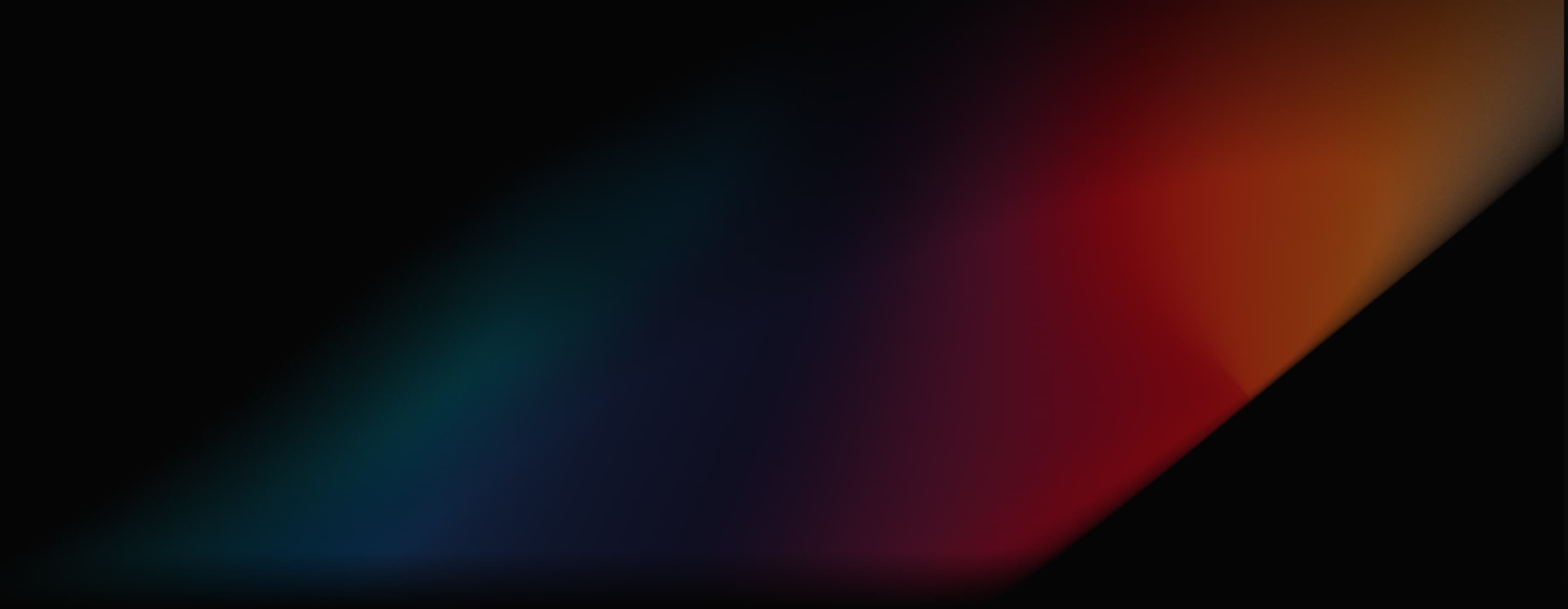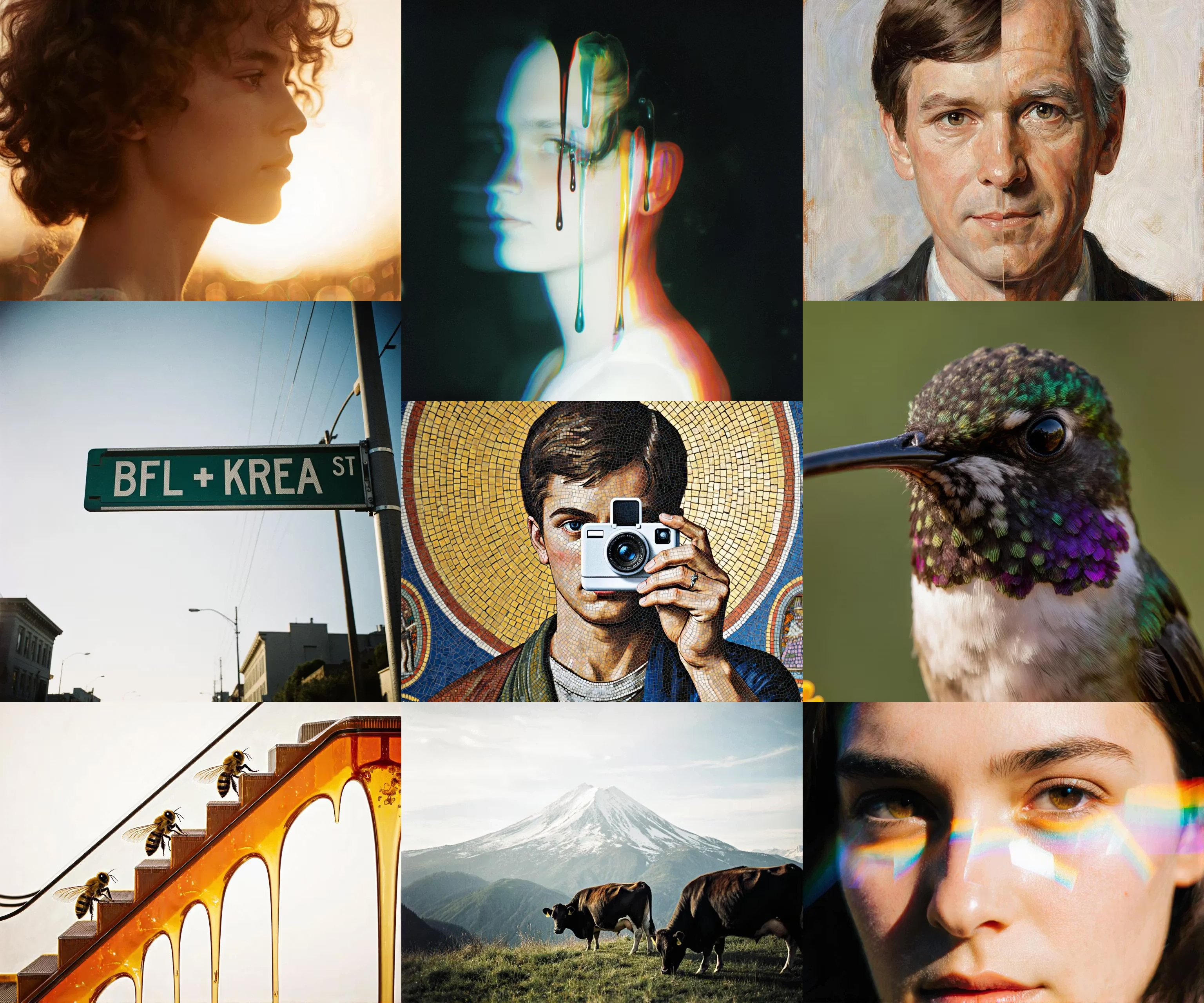
FLUX.1 Krea [dev]
FLUX.1 Krea [dev] is a new state-of-the-art open-weights model for text-to-image generation that overcomes the oversaturated 'AI look' to achieve new levels of photorealism with its distinctive aesthetic approach.

Introducing FLUX.1 Krea [dev]: A Distinctive Open-Weights Text-to-Image Model
The open-source generative AI landscape has just welcomed a notable addition — FLUX.1 Krea [dev], a collaborative effort between BFL and Krea AI. Designed to tackle the overly synthetic look common in many text-to-image models, this model brings a refreshing focus on photorealism, aesthetic clarity, and artistic individuality.

A Bold, “Opinionated” Approach to Image Generation
Unlike more neutral generators, FLUX.1 Krea [dev] embraces a unique visual perspective. As an open-weight version of Krea 1, the model delivers images that are not only highly realistic but also carry a distinct style. This “opinionated” approach results in visually engaging outputs that often go beyond literal prompts to offer surprising artistic interpretations — a rare quality among open models.
Performance & Compatibility
Despite its strong personality, FLUX.1 Krea [dev] performs impressively in human preference tests — rivaling even some closed-source alternatives like FLUX1.1 [pro]. It's fully compatible with the FLUX.1 [dev] ecosystem and can serve as a robust foundation for fine-tuning and domain-specific applications.
Key Highlights
- State-of-the-art open text-to-image generation
- Distinct visual identity that reduces the “AI-generated” feel
- High realism and nuanced detail
- Flexible architecture for downstream customization
- Ecosystem-compatible with the broader FLUX.1 [dev] toolchain
Open Access and Licensing
The model weights are publicly available through the BFL HuggingFace repository, with commercial licensing offered via the BFL Licensing Portal. Integration is made easy through API support from partners like Replicate, FAL, TogetherAI, Runware, and DataCrunch.
Why It Matters
FLUX.1 Krea [dev] reflects the growing potential of collaborative development between foundational model labs and application-oriented teams. By targeting real-world issues in image generation and combining aesthetic refinement with technical excellence, the model sets a new benchmark for open-access generative tools. For developers, artists, and researchers seeking a capable, characterful model to build upon — FLUX.1 Krea [dev] is well worth exploring.
Disclaimer
We are not affiliated with BFL or Krea AI. This page is an independent introduction to the FLUX.1 Krea [dev] model, based on publicly available information. All trademarks and model names mentioned belong to their respective owners.
FAQs
What makes FLUX.1 Krea [dev] different from other open-source text-to-image models?
Unlike many open models that prioritize technical accuracy or neutrality, FLUX.1 Krea [dev] offers a more "opinionated" visual style. It generates images with a strong aesthetic character and avoids the common pitfalls of oversaturated or overly synthetic-looking results. Its outputs tend to be more photorealistic and artistically expressive.
Is this model suitable for commercial use?
Yes. While the weights are openly available for research and experimentation, commercial usage requires a license. Licenses can be obtained via the BFL Licensing Portal.
How does FLUX.1 Krea [dev] compare to closed-source models in quality?
In human preference evaluations, FLUX.1 Krea [dev] performs on par with closed models like FLUX1.1 [pro]. It’s one of the strongest open alternatives available today in terms of image quality and realism.
Can the model be fine-tuned for specific tasks or styles?
Absolutely. It is designed to be flexible and is fully compatible with the FLUX.1 [dev] architecture, making it a strong base model for downstream fine-tuning and customization.
Where can I try or deploy FLUX.1 Krea [dev] easily?
Several platforms offer API-based access to the model, including Replicate, TogetherAI, Runware, DataCrunch, and FAL. These partners enable easy integration into creative tools, apps, or pipelines.
Who developed FLUX.1 Krea [dev]?
The model is a result of a collaboration between BFL, a foundational model developer, and Krea AI, an applied AI lab focused on creative generation. The partnership emphasizes the power of joint innovation between base model providers and application-driven teams.
